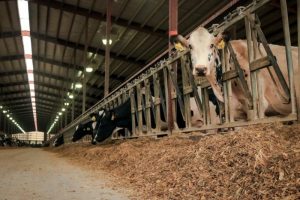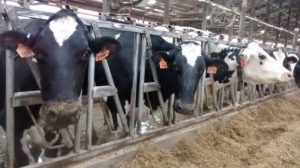
We know a lot about milk, but what do we really know? We take for granted access to the products of our choice in the supermarket, but we often don’t take our concerns to the source of things.
Although lately there has been a boom in wanting to know, either because of environmental or animal welfare concerns, not everyone has yet reached the right sources of information, because in the first line of search we are confronted with countless articles loaded with prejudices, with very little truth and no scientific support.
The rigor of the truth does not have much marketing, and perhaps because we assume it to be obvious, we do not work to make it more evident. The opposite happens with post-truth, which does have a lot of propaganda and where the TRUTH, with all the weight of its definition, I owe it to you; but it doesn’t matter anyway because it has left everyone spellbound and with their emotions, usually negative, on the surface, especially those who for various reasons have not cultivated much common sense and critical thinking.
The primary origin of milk is in the farm, where dairy farmers raise, breed and reproduce cows, take care of them and also cultivate their food. Yes gentlemen, milk comes from cows, and to clarify it is not an irony or a comedy step, nowadays any vegetable fluid is called milk.
For a cow to produce milk, it is necessary that she has reached the maturity to become pregnant and has given birth to a calf, or two if we are lucky! It is also necessary that they receive a feed according to each stage, that they are comfortable and happy because otherwise, they do not produce; that is why the dairy is one of the livestock activities that not only applies to the letter the maxims of animal welfare, but adds more and more elements of comfort: underfloor heating for newborns, huge fans when it is hot, a soft floor and even scrapers: giant brushes that they love, and a myriad of amenities.
Nature has endowed us female mammals with the ability to produce milk as the first food for our young. But do we then leave the calves without their food if we take away their mothers’ milk? No. A dairy cow produces between 22 and 35 liters on average per day, for a little more than 1 year. Her calf needs 6 to 7 liters of milk per day for only 2 months.
Dairy cows are milked 2 times a day or more, with mechanical extraction systems that are placed by operators in the milking parlor usually every 12 hours, or in robotic stalls that the cows enter voluntarily whenever they want and where it can be observed that they do it up to 4 times in 1 day. Being milked relieves them, and in no way inconveniences or harms them. And yes, you read that right: robots. You have no idea of the technology in the farm! I promise to tell you about it later.

The extracted milk is stored in cooling tanks, from where the trucks that take it to the industry pick it up daily, and which are also refrigerated. The cold chain is very important because it guarantees the milk’s health. Once there, the milk is analyzed, classified according to its quality, pasteurized, homogenized and packaged. Only after all this, the milk is on its way to the market where we buy it.
No, milk does not come from the fridge. It takes a long and laborious process that starts with a newborn calf that is lovingly cared for and fed with precision and accuracy until it grows big enough to become pregnant and give birth for the first time.
Milk is not only the most complete food ever created, it is the result of a perfect biological cycle that mankind learned to interpret, and intervened forever modifying our cognitive, skeletal and muscular development.
Milk is delicious, it is ancestral, it is cultural and it is healthy, it is good for you!
Have you had your glass of milk today?
Valeria Guzmán Hamann
EDAIRYNEWS

























